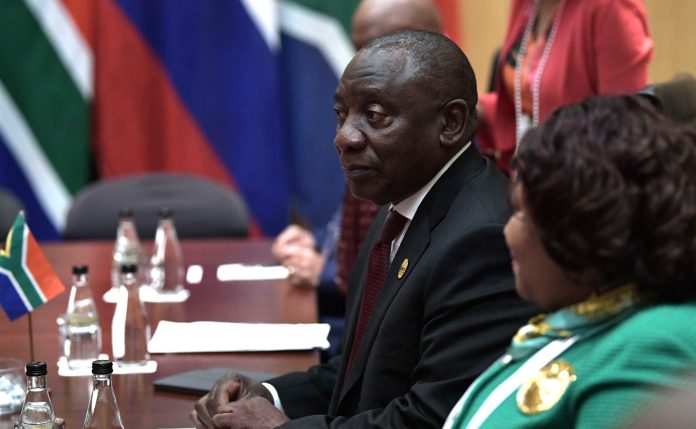Shaun Arendse, Marxist Workers Party (CWI, South Africa)
The African National Congress (ANC) December conference re-elected Cyril Ramaphosa as party leader for a second five-year term. Therefore, he will almost certainly lead the ANC into national elections in 2024. Although Ramaphosa remains ‘the most electable’ ANC leader, the party is expected to lose its governing majority next year, opening up an unstable era of coalition government. The ruling class faces a general crisis of political representation. This is ultimately a product of the crisis of South African capitalism and the razor sharp tensions between the classes this gives rise to.
The ANC has been completely transformed since coming to power in 1994. Having once been the most important banner for the mass struggle that brought down the racist apartheid segregation system, it is now little more than a criminal racket for looting state funds.
In the weeks before the congress convened, South Africa hovered on the edge of a constitutional crisis. Ramaphosa was on the brink of resigning following a scandal around the theft of large sums of undeclared dollars from his luxury cattle-breeding farm. His own claim to being an anti-corruption crusader was smashed overnight. However, despite this, and with limited alternative options, the ruling class still views Ramaphosa and his faction as the safest pair of hands for South African capitalism. Determined that he should continue as president, he was persuaded to remain in office.
Had Ramaphosa resigned, the presidency would have been handed back to the openly corrupt forces that coalesced around former president Jacob Zuma during his 2009-18 tenure. Out of power and under pressure from criminal investigations, these forces have fractured. However, most of them eventually backed former health minister Zweli Mkhize for party leader. He was forced to resign in 2021 – during the pandemic – over massive transfers of money from the health budget to companies linked to friends and family. Mkhize nevertheless received enough nominations to get on the ballot and 43% of congress delegates voted for him.
ANC degenerated
The ANC congress long ago degenerated into a desperate scramble for positions to gain access to government budgets. Delegations are little more than rent-a-mobs. Massive amounts are spent on hotels, food and drink to secure votes, alongside brown envelopes of cash.
The commissions that were meant to discuss policy were attended by mere handfuls of delegates. But there is no longer any serious debate within the ANC about the issues of most concern to the working class and poor. There is complete unity across ANC factions, for example, on legislation attacking the right to strike and the now multi-year attack on public sector pay which led to strike action last year. Despite unemployment of 34%, no faction has any serious policies for job creation. Incredibly, central to the Mkhize camp’s campaign was a call to scrap the so-called ‘step-aside rule’ that requires criminally-charged leaders, ministers, MPs etc to resign.
The overwhelming majority of the working class sees the ANC as the chief architect of its poverty, exploitation and suffering. Having already split in 2015 over support for the ANC, the issue is back on the agenda of the Cosatu trade union federation. At its 2022 congress, delegates refused to allow the ANC to speak. In May, a special congress will debate ending support for the ANC. But Cosatu members will have to campaign to ensure that their leaders do not retreat from this and organise to ensure the ANC is ditched.
This would pose the possibility of politically reuniting with the Saftu federation formed from the 2015 Cosatu split. Saftu has passed resolutions in favour of creating a workers’ party, but the leadership refuses to implement them. Delegates from all trade unions and federations, workplaces, communities and the youth, need to come together and plan the launching of a socialist mass workers’ party. This could lead mass campaigns for job creation, decent pay and public services, preparing the way for the end of the ANC’s corrupt rule and offer a socialist alternative to South Africa’s rotten crony-capitalism.







